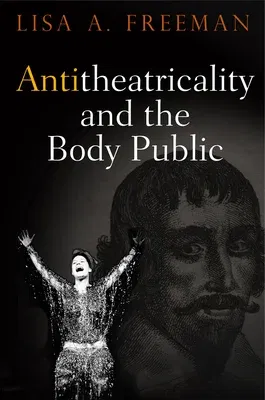Situating the theater as a site of broad cultural movements and
conflicts, Lisa A. Freeman asserts that antitheatrical incidents from
the English Renaissance to present-day America provide us with occasions
to trace major struggles over the nature and balance of power and
political authority. In studies of William Prynne's Histrio-mastix
(1633), Jeremy Collier's A Short View of the Immorality and Profaneness
of the English Stage (1698), John Home's Douglas (1757), the burning
of the theater at Richmond (1811), and the U.S. Supreme Court's decision
in National Endowment for the Arts v. Finley (1998) Freeman engages in
a careful examination of the political, religious, philosophical,
literary, and dramatic contexts in which challenges to theatricality
unfold. In so doing, she demonstrates that however differently the
public might be defined in each epoch, what lies at the heart of
antitheatrical disputes is a struggle over the character of the body
politic that governs a nation and the bodies public that could be said
to represent that nation.
By situating antitheatrical incidents as rich and interpretable cultural
performances, Freeman seeks to account fully for the significance of
these particular historical conflicts. She delineates when, why, and how
anxieties about representation manifest themselves, and traces the
actual politics that govern such ostensibly aesthetic and moral debates
even today.

